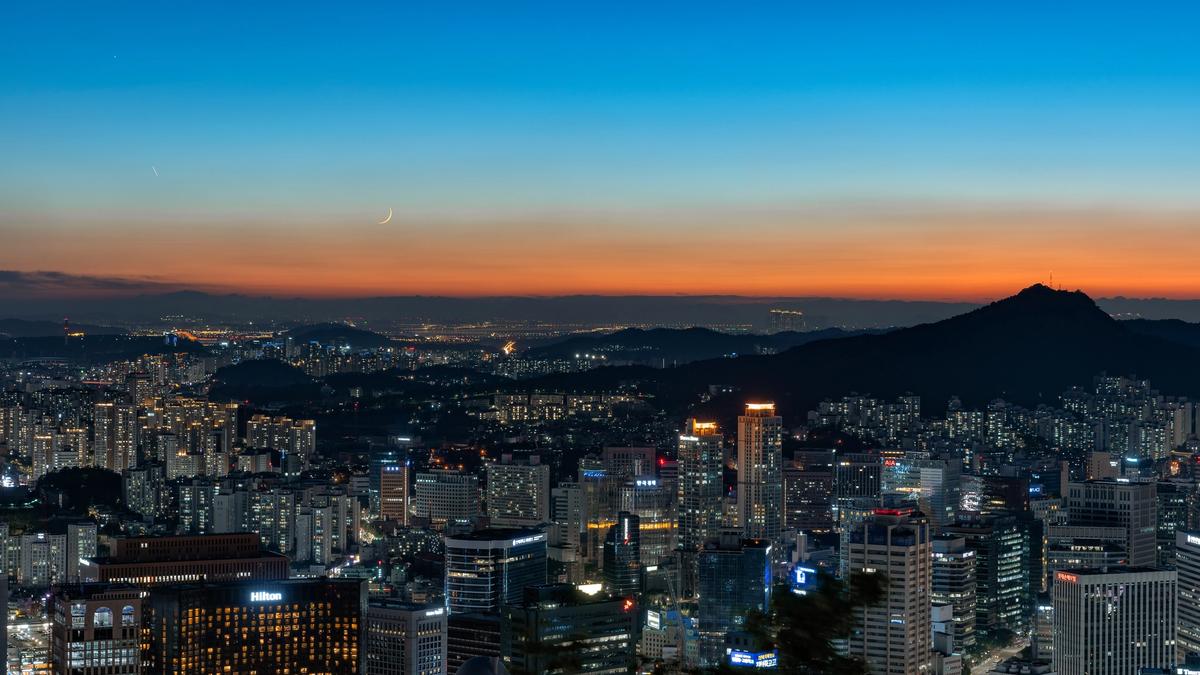For years, the art world has speculated about when, not if, Frieze would launch a fair in Asia. As the region has become the fastest growing collector base for contemporary art, it seemed a gaping hole in the brand's global ambitions.
And now it has—not in Hong Kong, not in Shanghai, but in Seoul, South Korea.
Frieze Seoul will launch in 2022 through a partnership with the Galleries Association of Korea. Frieze's fifth international fair, it will take place at the events venue COEX in the city's Gangnam district from 2 to 5 September, 2022, coinciding with the long-running regional fair Kiaf Art Seoul, featuring Korean galleries. Around 100 international galleries will take part in the first Frieze Seoul, most specialising in contemporary art although there will be a Frieze Masters section dedicated to historical art from antiquity to the 20th century. A list of exhibitors is yet to be announced.
"Seoul is a natural home for Frieze with its extraordinary artists, galleries, museums and collections," says Victoria Siddall, Frieze's board director, in a statement. "We are honoured to be working alongside the Galleries Association of Korea in a spirit of collaboration that is right for our times. Together, we will create an unmissable week in Seoul that brings together galleries from all over the world and celebrates the city’s vibrant art scene."
Dal-Seung Hwang, the chairman of the Galleries Association of Korea, adds: "In a period of high public interest in the Korean art market, the collaboration between South Korea’s largest art fair and Frieze will confirm Seoul as a hub of the global art market, and South Korea a major destination for the art market in Asia."
For international art businesses, the currently resilient state of South Korea's economy is attractive—thanks to its effective containment of the Covid-19 virus, its GDP contracted by only 1% last year and is forecast to grow by around 3% in 2021, according to the OECD.
Interest from Western galleries in Seoul is booming. Last week, Thaddaeus Ropac announced he would open its first Asian gallery in the Fort Hill building in the city's Hannam-dong district this October. “The attractive point for international organisations is that South Korea does not have any VAT or customs [charges] on art," Ropac says. "Contrary to China, which is very expensive to bring art into. But this is like Hong Kong, no VAT or customs. So it’s very easy to ship art in and out”.
In April, Pace (which first opened in Seoul in 2017) announced it is expanding to a bigger space occupying two floors of Le Beige Building, also in Hannam-dong, opening on 27 May with a Sam Gilliam exhibition. Marc Glimcher, Pace's president and chief executive says the city's "popularity is about to explode. Seoul is on the brink of new cultural investment, with major museums and art fairs interested in the opportunities it has to offer."
The Berlin-based dealer Johann König has also just opened a gallery in the Seoul district of Gangnam together with the luxury clothing brand MCM. “Korea has a strong position in the art market," König says.


